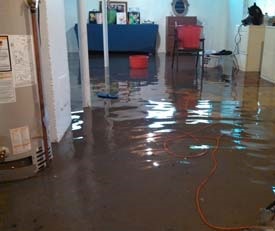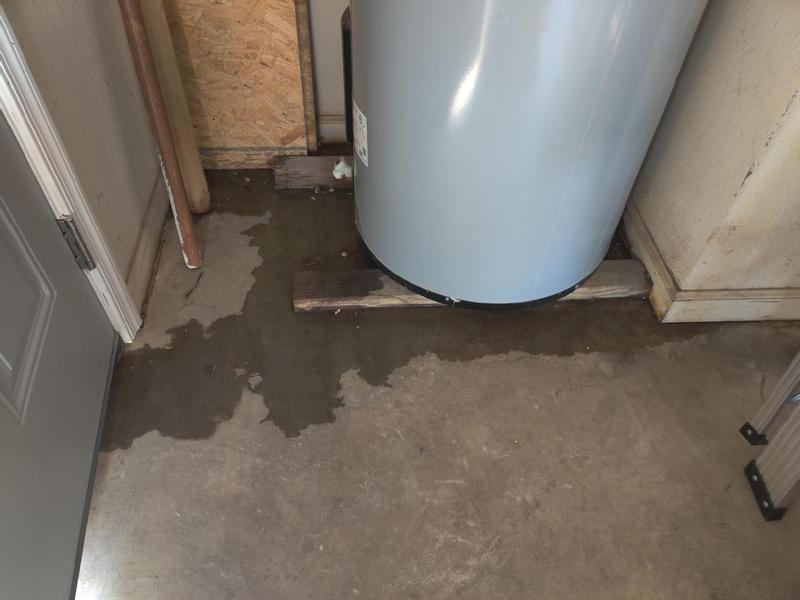Required Protocols for Homeowners Dealing with Broken Hot Water Systems
Required Protocols for Homeowners Dealing with Broken Hot Water Systems
Blog Article
Have you been looking for facts and techniques around What Do You Do When Your Water Heater Bursts??

Whether it is located in the basement or a separate space, busted hot water heater can cause tension. A typical unit holds 80 gallons, so an overnight leak will certainly cause a flooding. This leads to significant building damage with drenched wall surfaces and floors. Besides, having no warm water supply is also bothersome. If you are handling these problems, take note of the following:
Call the Plumber
After doing the first 2 safety steps, you have to call your plumber to find right away to repair a fractured hot water heater. Bear in mind that your unit will not simply conk out significantly overnight. There are normally indicators that your aging water heater has sediment accumulation in the inside. Take note of the following:
Rather, as quickly as you identify these indications, have actually a professional come to evaluate your water heater container. Commonly, water heating units have a life expectancy of concerning 8 to 12 years.
Cut Off the Cold Water Supply
Cut off the containers faucet water supply from the source. This goes from your main water line right into the tank. When your storage tank remains in good condition, the cold water quits filling up when the storage tank is complete. But because it is dripping, the water will certainly remain to move. Shut the shutoff discovered at the top of the heater. Rotate this clockwise to close it off. You must turn off that primary water supply line outside your property if you can not find it or reach it.
Turn Off Power Source
Before calling the plumber, closed off a gas water heater by turning the temperature dial. This will prevent electrocution, particularly if there is a leak as water is a conductor. Normally, the heating element closes off when the water hits a specific temperature level.
Clean Up Home
After calling the plumber, document damages by remembering and also pictures so you can assert your homeowner's insurance. From there, begin the prompt cleanup. Take out any type of crucial belongings to prevent further soaking. Then, remove any standing water to prevent mold and mildew and also mold growth. If you have a completely submersible water pump, utilize that to drain the water. Or else, the conventional bucket technique will certainly likewise work. Try to mop out whatever, including wall surfaces as well as baseboards. Keep them running to maintain air distributing if you have an electric follower and dehumidifier. This will certainly assist discourage mold and mildew development.
Keep in mind, if you observe any kind of concerns with your hot water heater, call the pros as soon as possible. You can not take this trouble gently due to the fact that a damaged thermostat can elevate water temperature to an alarmingly high level, leading to accidental burns. A damaged heater stress safety valve can likewise trigger an explosion. For ideal results, obtain a yearly check so your system gets evaluated, cleansed, drained, and re-filled, ensuring ideal performance.
After doing the first 2 safety steps, you have to call your plumber to come right away to repair a fractured water heater. Instead, as quickly as you spot these indications, have actually a specialist come to examine your water heating unit container. Prior to calling the plumber, shut off a gas water heater by turning the temperature level dial. If you have a completely submersible water pump, make use of that to drain the water. Remember, if you discover any type of problems with your water heating unit, call the pros right away.
Is My Water Heater Broken?
The Water Heater is Old
No appliance will last forever. This includes a home’s water heater. During its lifespan, residents are going to face a situation where a new water heater installation will be necessary. The biggest problem with this is that most people are not sure when their water heater expires. Not knowing this can lead to serious risks if the unit begins to act up due to old age.
Most makes and models of water heaters will last between eight and 10 years. While 10 years is the age when water heater replacement is highly recommended, the need to replace the unit may occur before this time or after. If the unit doesn’t show any symptoms of a problem, it is a good idea to replace it at the 10-year mark (from the manufacture date).
Some of the symptoms that indicate a new unit is needed include rusting, leaks, noises, and a failure to heat up the water. Also, note that not all units have a 10-year life expectancy. The main exception to this rule is that a gas unit will last for six to eight years.
Rusty Heater Inlet Valve or Water
While steel is the strongest material on earth, it does have a weakness – rust. If corrosion occurs on a steel surface, it will begin to spread and eat through the steel in certain areas. On water tanks and pipes that are made of steel, rust is a warning sign of an impending leak.
The issue for many is trying to figure out if the rust is coming from the water heater or the pipes that lead to the faucet. If rust is seen, it is a clear indication that water heater service from the professionals is needed.
If rusty water appears out of the faucets in the bathtub or sink, it likely means a rusty water heater. If there is rust near the water inlet or the pressure relief valve, rust has likely developed inside the tank. If tap water appears rusty, it may be an issue with the pipes.
Strange Sounds from the Water Heater
Are there strange sounds coming from the tank? As a water heater gets older, rumbling noises may develop and get louder and louder as the water in the tank heats up. In homes where large amounts of hot water are used, the issue is likely going to be even more obvious when more serious issues arise. If there is a strange or loud noise coming from the unit, it is probably because of sediment buildup. A good way to remedy this problem is by flushing the heater. If this does not work, then a new unit may need to be installed.
Leaks
As a water heater gets closer to the end of its useful life, there is a higher chance there will be water around the tank. If there is water, this usually means leaks are occurring. Based on where the unit is located in the home, a leak may result in serious property damage.
Leaks are usually caused by expansions in the metal tank. The expansions occur as time passes and as the inside body of the tank is exposed to multiple heating cycles per day. When a fracture forms, the gap will be slight enough to hold the water in; however, in more serious situations, this will not be the case. If the tank is idle, the water will not leak but when the metal expands during each heating system, small amounts of water will get through the gap.

Do you enjoy more info about Broken Water Heaters? Create a remark further down. We will be delighted to listen to your views about this article. In hopes that you visit us again soon. Do you know anybody else who is excited about What Do You Do When Your Water Heater Bursts?? Be sure share it. Thanks a bunch for your time. Kindly pay a visit to our blog back soon.
Plumbing SOS? Reach out! Report this page